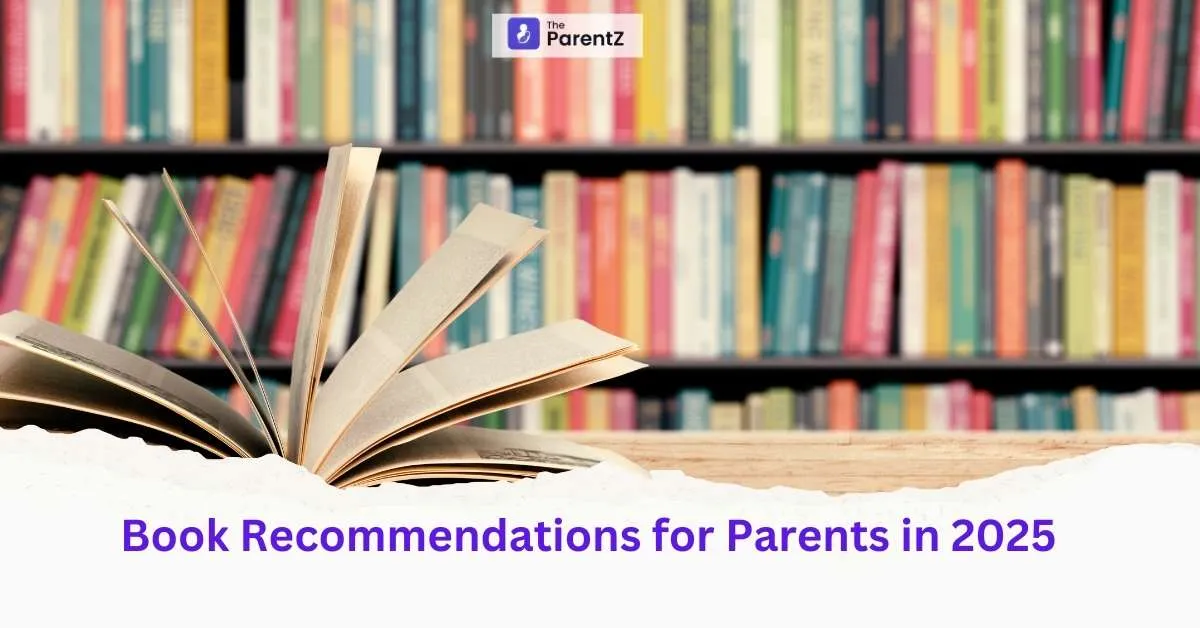Parenting is never static—it evolves alongside cultural shifts, technological breakthroughs, and global events. As we move further into the 2020s, parents are navigating unprecedented challenges: from balancing screen time and digital literacy to addressing mental health concerns heightened by social media and societal pressures. To help families thrive in this environment, many experts and educators have penned insightful books that offer guidance, research, and strategies for raising well-adjusted children. Below is a curated list of book recommendations for 2025, focusing on contemporary issues that parents face today and in the near future.
1. Raising Digital Citizens in the AI Era
Author: Dr. Caroline Matsumoto
Why It MattersBy 2025, artificial intelligence will likely be ubiquitous in homes and classrooms—from personalized education apps to AI-based assistants helping with daily tasks. While this technology can be transformative, it also raises concerns around privacy, overdependence, and critical thinking. In Raising Digital Citizens in the AI Era, Dr. Matsumoto, an educational psychologist, presents actionable steps for harnessing AI’s potential while preserving children’s independence and creativity.
Key Takeaways
- Setting Boundaries: How to structure AI use so it supports, rather than replaces, your child’s imagination and problem-solving.
- Ethical Conversations: Encouraging children to think ethically about the data they share and the AI tools they interact with.
- Collaborative Learning: Creating family routines that utilize AI for shared tasks—like meal-planning or budgeting—while teaching kids life skills.
2. Wellness in the Age of Screens: Mindful Parenting 2025
Author: Dr. Yasmin Albright
Why It MattersScreen time debates have become more complex as digital devices serve not only as entertainment but also as essential tools for communication, learning, and even therapy. Wellness in the Age of Screens dives deep into balancing these devices with children’s holistic development—physical, emotional, and social. Dr. Albright, a child psychologist specializing in media influence, offers frameworks to reduce digital overload and encourage healthier habits.
Key Takeaways
- Media Literacy: Teaching children critical thinking when encountering ads, news, and social media.
- Physical and Emotional Health: Techniques like “mindful breaks” to help children and teens decompress from continuous digital engagement.
- Setting Realistic Family Policies: Step-by-step guidance on negotiating screen-time limits that fit your family’s lifestyle.
3. Neuroscience for Growing Brains: What Every Parent Should Know
Author: Dr. Kelly Barnes
Why It MattersOver the past decade, breakthroughs in neuroscience have shed light on how children’s brains develop. This knowledge can inform better approaches to discipline, learning, and emotional support. Dr. Barnes, a neuroscientist and mother of three, breaks down complex research into digestible, practical strategies for parents in Neuroscience for Growing Brains.
Key Takeaways
- Brain Development Milestones: Understanding how cognitive abilities evolve in early childhood, tweens, and teens.
- Stress and Resilience: Why healthy stress management fosters long-term resilience and how to identify early signs of burnout or anxiety.
- Optimal Learning Environments: Evidence-based tips for designing activities—both at home and in collaboration with schools—to boost curiosity and creativity.
4. Happy and Resilient: Cultivating Emotional Intelligence in the 21st-Century Child
Author: Dr. Amanda Kessler
Why It MattersEmotional intelligence—often referred to as EQ—is recognized as a crucial factor in lifelong success, social relationships, and mental health. As children face heightened social pressures both online and offline, strengthening their self-awareness and empathy skills has never been more important. Happy and Resilient provides a range of exercises and anecdotes to guide parents in nurturing emotional intelligence.
Key Takeaways
- Daily EQ Routines: Quick, playful exercises that teach kids to label emotions, practice empathy, and manage conflicts.
- Mindful Listening: Techniques to improve parent-child communication, encouraging kids to feel safe voicing their thoughts and needs.
- Stress-Busting Activities: Activities like journaling, art therapy, and breathing exercises that foster emotional regulation skills.
5. The Sustainable Family: Living Green in a Modern World
Author: Rachel Greenfield
Why It MattersClimate change and environmental stewardship weigh heavily on the minds of many parents. How do you raise kids who are mindful of their impact on the planet without instilling fear or guilt? The Sustainable Family presents a hopeful yet realistic roadmap for eco-friendly living—covering everything from responsible consumer habits to home-based gardening projects.
Key Takeaways
- Easy Eco-Swaps: Practical ways to reduce plastic waste, water usage, and carbon footprints—even with busy schedules.
- Hands-On Learning: Engaging children in gardening, composting, and upcycling to develop a sense of responsibility and appreciation for nature.
- Community Building: Ideas for neighborhood collaborations and school initiatives that encourage widespread environmental awareness.
6. Blended and Beautiful: Navigating the New Family Norm
Author: Dr. Elena Ramos
Why It MattersBlended families, multi-generational households, and co-parenting dynamics are more common than ever. These structures can be rewarding but come with unique challenges around boundaries, discipline, and emotional bonding. Blended and Beautiful explores how parents can bring harmony to these modern family units, ensuring every member feels valued and heard.
Key Takeaways
- Positive Co-Parenting: How to maintain respect and communication with ex-partners for the benefit of children.
- Role Definition: Setting clear yet flexible roles for stepparents, grandparents, and extended family in daily routines and celebrations.
- Conflict Resolution: Techniques for mediating sibling rivalries and misunderstandings in a blended home environment.
7. Parenting the Future Innovator: STEM, Creativity, and Imagination
Author: Dr. Lionel Humphreys
Why It MattersSTEM (Science, Technology, Engineering, Mathematics) fields continue to grow in importance, but creativity and imagination remain crucial for breakthrough innovations. Parenting the Future Innovator offers insights into sparking curiosity and problem-solving at home, no matter your child’s academic strengths. Dr. Humphreys, a former NASA engineer turned educator, provides real-world examples of how small projects and big dreams can co-exist.
Key Takeaways
- Hands-On Projects: Fun experiments and activities that build foundational STEM skills—like creating a homemade weather station or coding simple robots.
- Integrating Arts: Using art, music, or storytelling to complement STEM learning, fostering well-rounded problem solvers.
- Cultivating Resilience: Encouraging kids to embrace failure as a stepping stone to success, a mindset vital in science and beyond.
8. Empowered Adolescents: A Guide to the Tween and Teen Years
Author: Dr. Marcus Park
Why It MattersRaising adolescents can be both exhilarating and daunting. With puberty, identity formation, peer pressure, and academic demands in the mix, the teen years often come with an emotional roller coaster. In Empowered Adolescents, Dr. Park, a clinical psychologist specializing in adolescent development, explores best practices for guiding tweens and teens through this critical growth phase.
Key Takeaways
- Identity and Self-Image: How to encourage healthy self-esteem amidst social media comparisons and academic competition.
- Building Independence: Striking the balance between giving teens autonomy while providing structure and safety nets.
- Communication Strategies: Tips for talking about difficult topics—substance use, mental health, relationships—without judgment or alienation.
9. The Psychology of Connected Parenting: Understanding Your Teen’s Online World
Author: Dr. Ingrid Colson
Why It MattersWith social media platforms evolving rapidly, parents can struggle to keep pace with their teens’ digital experiences. The Psychology of Connected Parenting demystifies various online subcultures and trends, helping you understand potential pitfalls—like cyberbullying or addictive online behaviors—while guiding your teen toward healthier online interactions.
Key Takeaways
- Digital Empathy: Teaching kids to navigate online disagreements with respect and compassion.
- Spotting Red Flags: Early warning signs of social media obsession, online harassment, or damaging comparisons.
- Creating Tech Agreements: Collaborative discussions on device usage, screen-free zones, and nighttime boundaries.
10. Conscious Family Finance: Budgeting and Saving with Heart
Author: Alison Spencer, CFP
Why It MattersFinancial literacy is a pillar of long-term security and well-being. With economic uncertainty and rising costs, many parents are looking for ways to teach children about responsible spending, saving, and investing. Conscious Family Finance outlines practical steps for integrating financial education into everyday life, ensuring kids grow up with a healthy money mindset.
Key Takeaways
- Age-Appropriate Lessons: Approaches to teaching budgeting concepts to toddlers, tweens, and teenagers.
- Family Saving Goals: Turning vacations, home improvements, or charitable giving into collaborative efforts.
- Ethical and Values-Based Spending: Helping children understand the social and environmental impact of their purchasing decisions.
Making the Most of These Recommendations
A. Consider Your Family’s Unique Needs
Every family dynamic is different. Some parents might be more concerned about digital literacy and mental health, while others may prioritize sustainability or financial education. Use this list as a menu of possibilities—pick and choose the books most relevant to your current challenges.
B. Integrate Knowledge Gradually
With the wealth of information available, it’s easy to feel overwhelmed. Rather than trying to implement every suggestion at once, focus on one or two key insights from each book. Build small, consistent habits—like having a weekly family discussion or instituting one screen-free evening—and give those habits time to flourish.
C. Share Insights with Co-Parents and Extended Family
Reading these books as a couple—or discussing them with grandparents or other caregivers—fosters alignment in parenting styles. When multiple family members or caregivers are on the same page, children experience consistent messaging and support.
D. Stay Flexible
No matter how thoroughly you plan, parenting always throws curveballs. A technique that worked for your older child might not resonate with a younger sibling. Or you may discover that your teen’s unique personality calls for a different approach. Adaptability is key, and the best books offer principles, not rigid rules.
Conclusion
As we stride deeper into the mid-2020s, the challenges and opportunities of parenting are expanding in ways previous generations never imagined—from AI tools transforming everyday tasks to more nuanced conversations about environmental responsibility. This booklist for 2025 underscores the importance of staying informed, flexible, and compassionate in navigating parenthood. By exploring topics such as digital citizenship, emotional intelligence, sustainable living, and conscious finance, you’ll be better equipped to guide your family toward a balanced, fulfilling life—both now and for many years to come.






